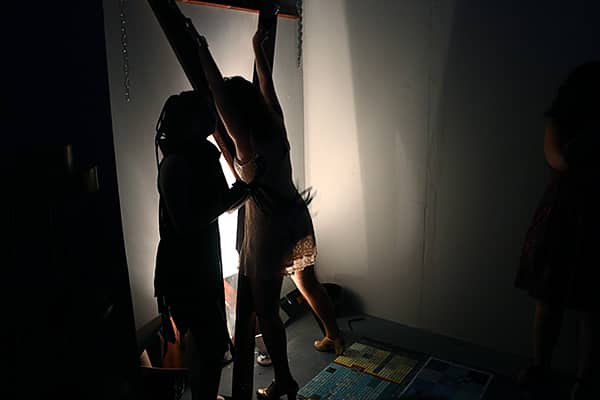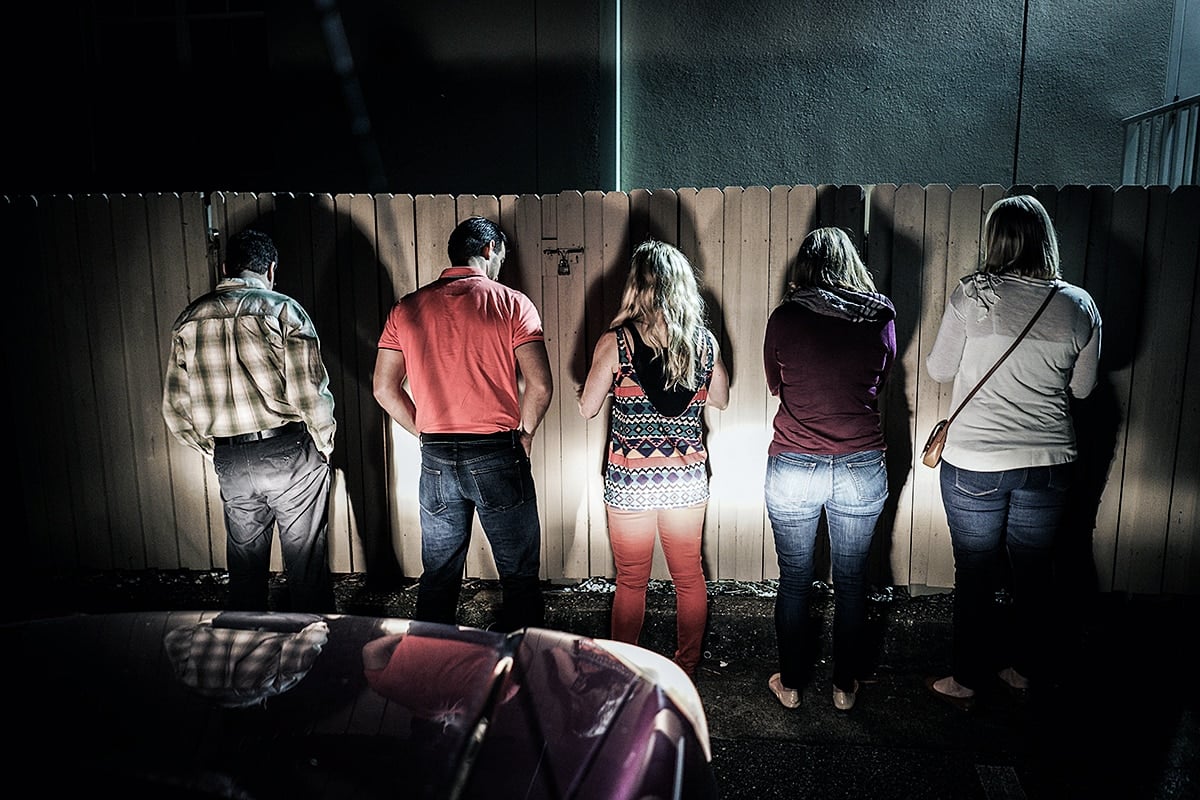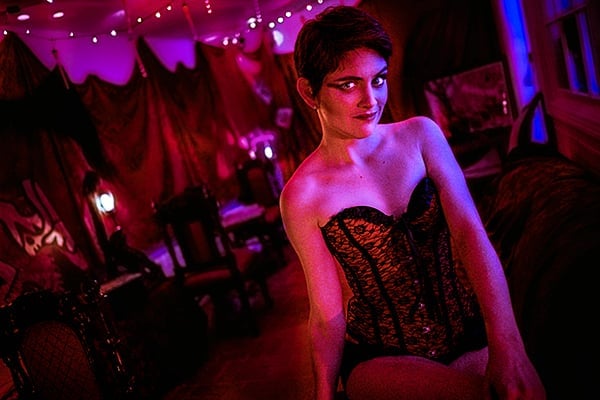Too tired to read?
Listen to this article instead:
by Ricky Brigante
Memorable experiences not only make audiences want to return but make them want to relive the experience by re-telling their story to friends. In this way, guests become ambassadors for your business, which brings in new customers.
But the reason to intentionally create specific memorable moments within your experience goes deeper than just offering people a good tale to tell.
In the world of live events and entertainment, forgettably frivolous experiences (cheap thrills) are abundant. But then there’s entertainment that lasts— sticky experiences which make audiences think and feel. If executed properly, sticky experiences can deeply affect, change, and inspire people. A deeper connection isn’t only the goal of the artist but that of the business person as well. It’s good business to create meaningful, lasting connections with customers rather than just sending them laughing or screaming out the door.
The only way to truly make memorable experiences on this level is to elevate them beyond guest expectations. True joy, engagement, inspiration, or agency requires an elevated approach and technique. The design stems from intent.

STRATEGIC SURPRISE
Crafting a surprise for patrons is the result of designers’ careful planning. It takes far more effort to plan a good surprise than it does to plan the obvious. And it takes even more effort than that to plan a “strategic” surprise.
The obvious is an environment someone steps into—their surroundings. A surprise is a “boo scare” in a haunted house—a fleeting moment. A strategic surprise, however, is an unforeseeable twist that comes three-quarters of the way into an experience that had been set up throughout every scene that led up to it—unbeknownst to the guests. It’s something that, in hindsight, is obvious, but, along the way, they don’t it see coming.
A strategic surprise isn’t necessarily a twist, though it can be. It doesn’t have to be exceedingly clever. When designers try too hard to be too clever, they often either make the surprise too obvious with clues or risk making the audience feel dumb because they didn’t “get it” sooner.
The best strategic surprise is one that every guest understands, has an emotional connection to, and leaves thinking about as one of the most memorable moments of that experience. Hopefully, guests leave with a new perspective on the entire experience—and, perhaps, even want to return to see it again.
Case Study—“When Shadows Fall”

In our most elaborate immersive experience at Pseudonym Productions to date, “When Shadows Fall,” audience members (“players”) chose their role out of 14 available options. This meant choosing their place in the fictional world we created for that evening by selecting who their allies would be—at least at first.
Players were empowered to make their own choices throughout the experience, shaping the story as they went. Simply by stepping into a massively complex and sprawling new world, everything seemed exciting and, with so much to take in, most people—at least their first time—simply ‘went along with it’ without making many choices at all. The player’s transition into the fictional world was eased by pairing the player with a specific character/actor via their role choice. Players typically followed any encouragement to trust that character implicitly and follow their word as gospel.
One character in this world was sweet and amiable—at the beginning. He spoke of virtue and provided examples of how he, alone, was the one to trust because he was hand-picked by the world’s founder to uphold the society’s principles. Players, therefore, felt special to be paired with this ‘second-in-command.’
He asked players to retrieve evidence of wrongdoing in the world and bring it back to him, where ultimately it would be brought to trial. It seemed like the right thing to do, and players felt empowered by their ability to help.
Along the way, players had complete control over who to talk to, what to see, how to behave, and whether to follow through. Players could come across evidence that pointed to this heroic character being more of a villain than he made himself out to be, and they could opt to turn on him, secretly, and ultimately be faced with the decision to present evidence for or against him at trial. Producing evidence on behalf of this character would thrust him into power while condemning the existing leader. If they produced evidence against this character, he’d be the one condemned while the other retained power.

But, none of this mattered when it came to the players’ well-being. That was the strategic surprise. Players were putting themselves into an “unwinnable” situation by choosing sides. If players supported their character, he quickly turned on them, because they knew all his secrets. Players got banished to what amounted to prison. But, if they condemned him, players were seen not only as allies to the villain but also as untrustworthy, since they’d turned on him, and they were banished as well.
It overall is a “win” for players because they got to experience something surprising that sent them down an unpredictable path. Control appeared taken away from the player, but it was simply a case of hitting an important story beat for their experience, which was necessary to enhance their time with us.
Give players complete control, and they’ll quickly act like gods, which is never a fun experience for anyone because chaos will reign. It’s necessary to include some strategic surprises to keep participants on their toes.
In this case, the surprise was strategically orchestrated from the moment each player chose his or her role. They were destined to be banished, which ultimately opened up the opportunity to meet entirely new characters and explore a whole different side of the world. This created a powerfully memorable moment. And it made them even more invested in the story, wondering what they’d done to lead to this moment and what they could do from there. It was unpredictable and thrilling.
Place your guests in a position of control—and then make them feel like you’ve taken it away. Make them feel like they’re vitally important to the fate of the characters around them—and then make them realize they’re no more important than anyone else. Only by toying with a participant’s degree of agency will you ever make them truly feel they have any agency at all.
Moreover, keep the all-powerful position of storyteller (or “dungeon master”) your role as the creator of the experience. Give only as much control as is needed to make the participant feel special, and then remind them how special that control is by taking it away from them. Then, when they get a moment of power again, they’ll use it more responsibly and cherish it that much more.

BREAK THE SCRIPT
The world of marketing is full of hyperbole; Every experience is touted as the ‘most exciting, exhilarating, thrilling, unforgettable adventure in the history of the known universe. But only a select few experiences live up to those all-too-common exaggerations.
Instead of championing similar unattainable goals—which invariably leave an audience’s expectations unfulfilled—pick out one element of your experience that is, to you, the most compelling and market that alone. When designing your experience, try to include one element—and it can be just one element—that’s so unique, original, or unexpected that if you were to tell a stranger about it, their reaction would be not to believe you. “There’s no way they can do that” is exactly the reaction you want for your biggest marketing message because, when you do something even bigger, your audience is wowed.
Break your script. Promise something amazing—and then go one better. You’ll leave people stunned.
People don’t just want their expectations met. Memorable moments arise when high expectations shatter. Find a way to take your best element and make it even better—but without telling anyone about it.
Case Study: “A Study of Dreams”

In our most recent Halloween season production, “A Study of Dreams,” we promised players a world in which “anything is possible.” It was a world of lucid dreaming in which players could “control” their dreams. That’s a pretty bold statement to live up to, considering we had no way of reading players’ minds or seeing their dreams and fantasies… unless they told us.
So we asked. We included an optional questionnaire in the ticketing process that flat out asked for players to tell us their dreams, their nightmares, and their most extreme fantasies.
We knew those who opted not to submit responses would be fine with just about any wild entertainment we gave them. But those who gave us very specific responses clued us into the type of entertainment they were looking for, so we were able to tailor the experience based on what people wanted. Sure, we couldn’t fulfill every fantasy—but that wasn’t the point. We took inspiration from their submissions and understood the general themes people wanted. Naturally, no one expects a dream to play out a certain way. Dreams are unpredictable. But we knew that as long as we drew inspiration from the common themes people submitted, we’d be on the right track toward a memorable experience.
We also included a qualifier in our marketing: “Control your dreams—or nightmares will take control of you.” We audibly repeated that in the introduction to our experience, ensuring that everyone understood what we were saying. Essentially, we offered bold guests the option to push us and see if we could live up to the promise of “anything” being possible. But we also offered an “out” for those who were more passive or simply wanted to see where this rabbit hole would lead. They could let us take control, which was still their choice. It allowed everyone to leave knowing they’d received precisely what they’d come for and what they’d chosen.
But that still wasn’t enough. To form truly memorable moments, we had to push it even further. We had to break our script.
In the background of the experience’s website, we scattered words that were intended to prompt our players with ideas subconsciously. Trance, analysis, lofty, desire, repressed, fading, awakening, paralysis, terror, fantasy, erotic are a few of the words that made our players wonder just what was, in fact, going to happen in this experience. There was enough word variety that everyone had something to latch onto, whether they were in pursuit of something more psychological, something more physical, or something in between. The word conditioning also enabled our players’ imaginations to start dreaming of moments they would and wouldn’t enjoy—and, most importantly, allow them to start wondering “what if?”

It’s those “what if?” moments that we had to deliver on. They were the moments that our audience secretly hoped—but never believed—we’d create.
Then we did. Those moments felt even bigger and more unexpected because they were real, not just dreams in participants’ heads. We did it. (We’ll leave what “it” was vague here, as it varied from night to night, participant to participant and, well, not all of it was entirely family-friendly).
We left our audiences feeling as if they truly had their dreams fulfilled—even if they were dreams they never really had in the first place. We left them in a blurry daze of their choosing, having just experienced something truly memorable.
Instead of saying, “There’s no way you can do that,” they left saying, “I can’t believe you did that!” Then they quietly followed that statement with, “Do even more next time…”
No two people’s experiences were exactly identical in “A Study of Dreams,” allowing them to swap stories if they wished; the sharing opened the door to even more speculation about what is and isn’t possible in the future. And, from now on, when we say “anything” is possible, people will truly believe it—and will return to see just what “anything” could be.
Write your scripts—and then break them. Give your audience control—and then take it away. Create memorable moments through strategic use of surprises that allow your patrons to feel real emotions and form bonds with you, the creator.
In the process, you’ll consistently shatter expectations and find loyal audiences for life.

Key Takeaways:
- Memorable experiences not only make audiences want to return but make them want to relive the experience by re-telling their story to friends, thereby becoming ambassadors for your business.
- It takes far more effort to plan a good surprise than it does to plan the obvious. And it takes even more effort than that to plan a “strategic” surprise.
- A strategic surprise isn’t necessarily a twist, though it can be.
- The best strategic surprise is one that every guest understands, has an emotional connection to, and leaves thinking about as one of the most memorable moments of that experience.
- Give players complete control, and they’ll quickly act like gods.
- Only by toying with a participant’s degree of agency will you ever make them truly feel they have any agency at all.
- Deliver on the ‘What If’ moments.
Quiz Yourself:
- How would you describe ‘Strategic Surprise’ and ‘Breaking the Script’?
- To break the script, is it a good idea to include several changes or only one, and why?
- Give specific examples of how Ricky used both Strategic Surprise and Breaking the Script.
- Describe the role of agency in guest engagement. Why isn’t it a good thing to give guests complete control?
- What was the last thing that surprised you at an attraction?
- Describe the characteristics of that surprising experience. Did the experience share anything with Ricky’s examples?
- How can you adapt Strategic Surprise to create a different experience at your attraction using the principles above?

Ricky Brigante is Producer & Technical Director at Pseudonym Productions in Orlando, Florida. He’s also the Founder of Inside the Magic, a leading voice on themed entertainment.